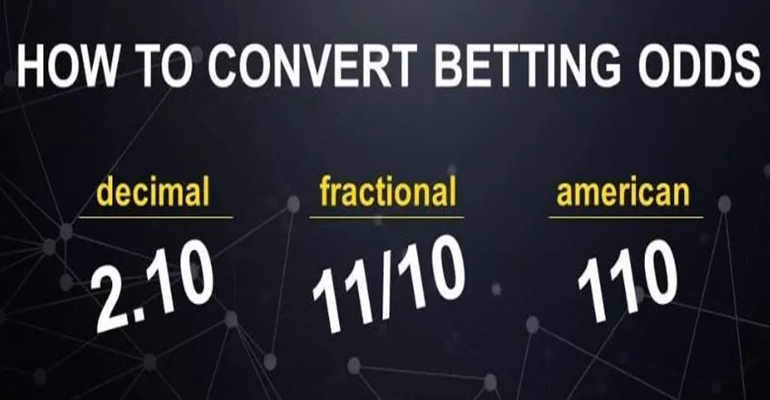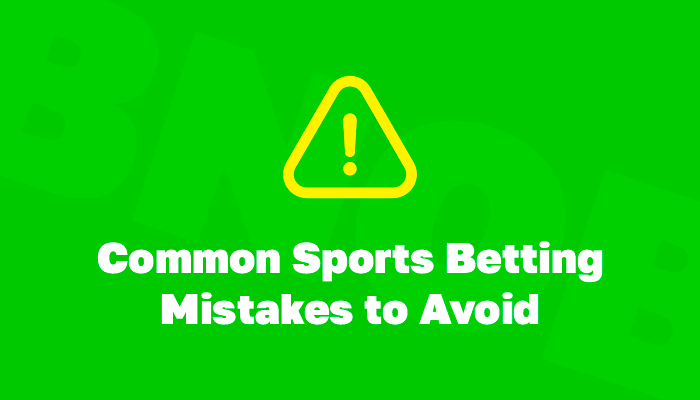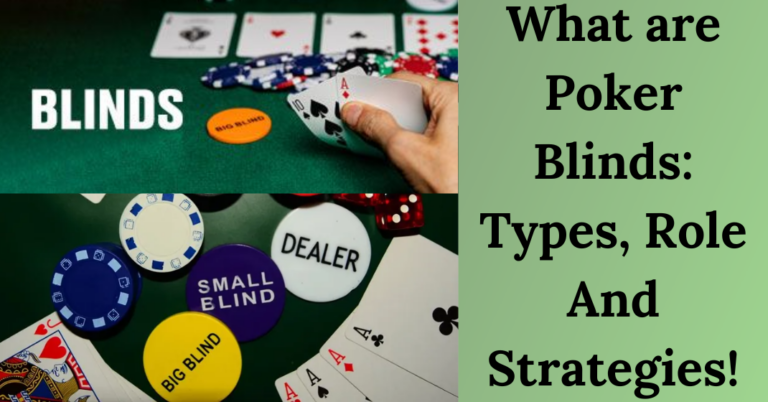How Does Sports Betting Work: Betting Odds Explained!

Sports betting involves predicting the outcome of a sports event and placing a wager on your prediction. If your prediction turns out to be true, you win money. The popularity and market size of sports betting have grown tremendously over the years. According to Grand View Research, the global sports betting market is estimated to reach a valuation of $83 billion by 2025.
The main goal of sports betting is to make accurate predictions on game outcomes to win money. This article explains how sports betting works in detail.
TYPES OF SPORTS BET
While the basic premise is simple, many ways to bet on sports exist. Some popular types of wagers are:

Moneyline Bets
This is the most straightforward type of sports bet – simply picking the team you think will win the game without any point spreads or margins of victory involved.
Based on their probability of winning, each team is assigned moneyline odds in formats like:
Team A -150
Team B +130
Team A is the favourite with a negative moneyline value, and Team B is the underdog with a positive value. The payouts reflect the risk, with lower risk on the favourites.
Point Spread Bets
Point spread bets involve handicapping the favourite team while giving the underdog team an advantage to even out the chances of winning, as explained here.
The favoured team needs to win by more than the spread for a spread bet on them to cash out. Similarly, an underdog team can lose but still cover the spread.
For example:
Team A -6.5
Team B +6.5
Team A must win by 7 or more points to “cover the spread”. If Team B loses within 6 points or wins outright, bet on the cover.
Also Read: Understanding The Irish Lottery: A Guide For UK Players
Totals/Over/Under
Also called over/under bets, here you wager on the total points scored by both teams. Sportsbooks set a benchmark figure based on past averages, injuries, weather, etc. You bet whether you think the total will be over or under that projection.
For example:
Total Points
Over 49.5
Under 49.5
Suppose the teams combine to score 50 or more points; the overcashes, if they score 49 or fewer combined, are the undershirts.
Parlays
Parlay bets allow you to combine multiple wagers into a single bet for more significant returns. But you only win if all legs of the parlay win – going 2 for 3 is still a loss.
Some examples of parlays:
- Team A to win + Over Total Points
- Team A to cover spread + Team B moneyline
- Team C’s future bet to win the championship
Use a parlay calculator to estimate potential payouts on these high-risk, high-reward bets.
Teaser Bets
In teasers, you adjust the point spreads to make them more favourable and reduce the odds compared to regular spread bets.
For example:
- Moving a standard -7 spread in a 6-point teaser at -1 means that the team needs to win by two or more instead of 8. But you will get lower odds than taking them at the full -7 spread.
Teasers allow you to reduce risks on spread bets you still like by “buying” more points.
Prop Bets
Proposition or prop bets are based on occurrences within a game like:
- Which player will score the first touchdown
- Will there be overtime
- Player vs player performance bets
These niche bets allow you to focus on specific player stats or game situations beyond the final score.
BETTING ODDS AND PROBABILITIES:

Understanding sports betting odds is crucial to making informed wagers and intelligent betting decisions.
How Betting Odds Work
As explained on Covers, odds in sports betting represent the probability of a particular outcome and indicate the potential returns from that wager.
Some critical aspects regarding betting odds:
So, betting odds let you quantify the risk versus reward on offer before making a wager.
What Do Odds Represent
As highlighted above, odds represent a couple of key metrics:
Higher odds mean bookmakers think there is a lower chance of that result happening. On the other hand, lower odds indicate the outcome is more likely. These probabilities are also called implied odds.
The higher the odds, the more money you can win if your prediction is correct. Lower odds mean a smaller payout but a higher chance of winning. Managing this risk-reward dynamic is crucial to betting.
Converting Between Odds Formats

There are three main ways sports betting odds can be displayed:
Tools like a betting odds converter allow you to quickly switch between formats to take advantage of the best odds available across sportsbooks using your preferred odds style.
EFFECTIVE BETTING STRATEGIES

While sports betting is exciting, winning consistently over the long run requires effective betting strategies around handicapping, money management and responsible gambling practices.
Find Value in the Odds
This betting strategy focuses on spotting mismatches between the implied probability from bookmaker odds versus your assessment of the chances for a specific outcome. Identifying these value bets gives you an edge.
As explained in Dummies, value betting success requires:
- Accurately estimating probabilities for outcomes
- Comparing your estimates to odds on offer
- Determining expected value and placing value bets
Leveraging statistics, situational analysis, and a deep understanding of the sport gives you the inputs to estimate probabilities better than the average bettor reading betting lines. This is necessary to profit from value betting.
Manage Your Bankroll
Bankroll management tries to maximise potential winnings while minimising risks of significant losses and going bust by:
- Setting fixed bet sizing relative to your overall bankroll
- Scaling bet amounts based on edge and odds
- Avoiding chasing losses from previous events
This vital betting strategy uses concepts like the Kelly Criterion to determine optimal stakes mathematically based on expected value to grow your bankroll responsibly.
Compare Betting Lines
Thanks to many regulated online sportsbooks, bettors can access odds from various sources for the same events. This allows you to line shop for the most favourable prices across books. A strategy combining arbitrage and value betting called middling locks in guaranteed profits from discrepancies in odds. Tools like Odds Portal make it easy to quickly compare odds, identify arbitrage opportunities, and determine where the best value might lie on a particular team or outcome.
Also Read: Do Scratch Cards Expire? All You Need To Know!
HOW TO BET SPORTS ONLINE

Online sports betting makes accessing betting markets easier than ever directly from your phone or laptop.
Finding Legal Betting Options
The availability of online sports betting depends on your location and local regulations around gambling. Resources like the Covers betting tracker show state-level legal status across the US. In places like the UK, most licensed bookmakers offer legal online betting to customers. But countries like India still prohibit online gambling, limiting options there.
Signing Up at a Sportsbook
Reputable online sportsbooks like FanDuel require providing some personal info to create an account online, including securely.
- Name
- Address
- Date of birth
You also need to set banking preferences and deposit funds before being able to place online wagers.
Depositing Funds
All the significant sportsbooks accept various payment methods these days:
- Debit/credit cards
- eWallets like Paypal
- Bank transfers
- Mobile payments
Depositing is quick, and fees are generally low across standard options. Minimum and maximum deposit amounts do vary by method.
Placing Your First Bet
Once the membership account is set and funded, find the sport and betting markets you want and:
- Add desired picks to the bet slip
- Input your stake amount
- Review selections and confirm your wager
It’s that easy to get started betting at leading online bookmakers!
How to Bet at a Sportsbook
Visiting a retail sportsbook lets you enjoy the game and atmosphere while placing in-person bets.
What to Bring
To gamble at any in-person sportsbooks or horse racing tracks, you must:
- Provide government-issued ID during sign-up to verify your age and identity
- Have cash on hand to fund any bets if betting windows are cash-only
Some venues also offer self-service betting kiosks for convenience.
Placing In-Person Bets
When at the betting window, clearly state to the writer:
- Event ID # or rotation # for the matchup
- Type of bet – spread, money line, total, etc
- Side-team name or over/under is a common
- Size of your wager
The ticket writer will print you a slip confirming the details, which you must redeem for payouts later.
Developing Your Betting Strategy

There is no definitive template for crafting the ideal sports betting strategy. Assessing your strengths honestly and balancing skills with responsible practices is critical.
Assess Strengths and Weaknesses
Review your past betting history spanning months to spot:
- Specific leagues or sports you excel at
- Common bet types you successfully target
- Any problematic tendencies like chasing losses
This allows you to double down on your edges while improving vulnerable aspects through better knowledge or discipline.
Find Your Edge
In such a competitive environment, gaining an edge over recreational bettors and bookmakers requires the following:
- Identifying and processing informative data or stats the average bettor ignores
- Following league, team and player news more closely to capitalise on injuries, trades and other updates quickly
- Access to predictive modelling and analytics tools
Cultivate expertise in niche corners of the market to find value the masses overlook early.
Balance Emotion Versus Logic
Fans naturally tend to be biased towards teams and players they support. But letting emotions override probabilistic and expected value calculations will undermine your long-term profits.
Objective analysis and data insight must anchor your decisions rather than sentimentality over hometown heroes like Tom Brady or LeBron James. This mental discipline separates winning bettors from losing homers.
Employ Selectivity
With thousands of events across dozens of sports occurring weekly, it’s impossible to predict every game, fight or race with reliability accurately. Pursuing less volume with precision gives you a better chance rather than firing away recklessly in every match.
Focus your efforts on spots where you have the most confidence and edge based on reliable signals in the data, situational factors and your expertise within that competition. Being selective allows you to concentrate your risk budget on high-conviction wagers.
Also Read: What Beats What In Poker? Poker Hand Rankings Explained
Common Mistakes

Avoiding these blunders will improve your chances of success:
Conclusion
While sports betting is more mainstream than ever thanks to expanded legalisation efforts, effectively predicting uncertain game outcomes for profit requires skill. By understanding key concepts around betting types, odds formats, implied probability, expected value, line shopping and common pitfalls, new bettors can avoid turning their enjoyment of sports gambling into financial losses. Instead, they are prepared to wager responsibly with a long-term edge over leisure punters and bookmakers.
So, while luck plays a role in specific plays and bounces, maintaining winning percentages demands skilful prediction grounded in objective data. By melding analytics with situational awareness and measured risk-taking, the path to sports betting success opens up to dedicated bettors.






